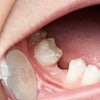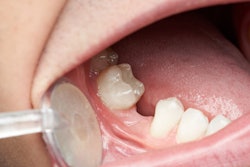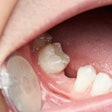Abnormal bowel habits like chronic constipation and diarrhea may be correlated with a higher risk of poor teeth conditions, according to a large U.S. cross-sectional study published on April 21 in BMC Public Health.
Patients appeared to exhibit optimal teeth condition when maintaining at least eight bowel movements per week, the authors wrote.
“This study, for the first time, untangles the correlation between abnormal bowel habits and oral health, providing empirical support for the oral-gut axis theory in the context of chronic intestinal insufficiency,” wrote the authors, led by Zhirui Guo of the Second Affiliated Hospital of Nanjing Medical University in China.
Globally, oral diseases affect about 3.5 billion people. Common intestinal disorders like chronic diarrhea and constipation may interact bidirectionally with oral health. However, this possible association hasn’t been explored until now.
To investigate the correlation between abnormal bowel habits and oral health, data for 7,512 adults from the U.S. National Health and Nutrition Examination Surveys 2005-2008 were analyzed. Bowel habits were defined based on a health questionnaire, and oral health was determined using an oral health survey. Then regression models were completed, according to the study.
After adjusting for sociodemographic, lifestyle, and clinical factors, chronic constipation remained associated with 45% greater odds of poor teeth (odds ratio [OR] = 1.45, 95% confidence interval [CI]: 1.05 to 2.01). Meanwhile, chronic diarrhea showed a 24% increase in poor teeth (OR = 1.24, 95% CI: 0.94 to 1.65), the authors wrote.
Additionally, individuals who had eight to 10 bowel movements per week had optimal teeth conditions. At lower and higher extremes of stool frequency, increased risks of poor tooth conditions were observed, they wrote.
These significant associations may warrant the implementation of interdisciplinary therapeutic approaches. Furthermore, clinicians should consider conducting routine dental screenings for patients with persistent intestinal abnormalities, particularly those with bowel movement frequencies of less than eight or more than 10 times per week, the authors wrote.
Nevertheless, the study had several limitations. Causality could not be determined due to the cross-sectional design of the study, they wrote.
“Both chronic constipation and diarrhea were associated with higher risks of teeth problems,” Guo and co-authors wrote.



















